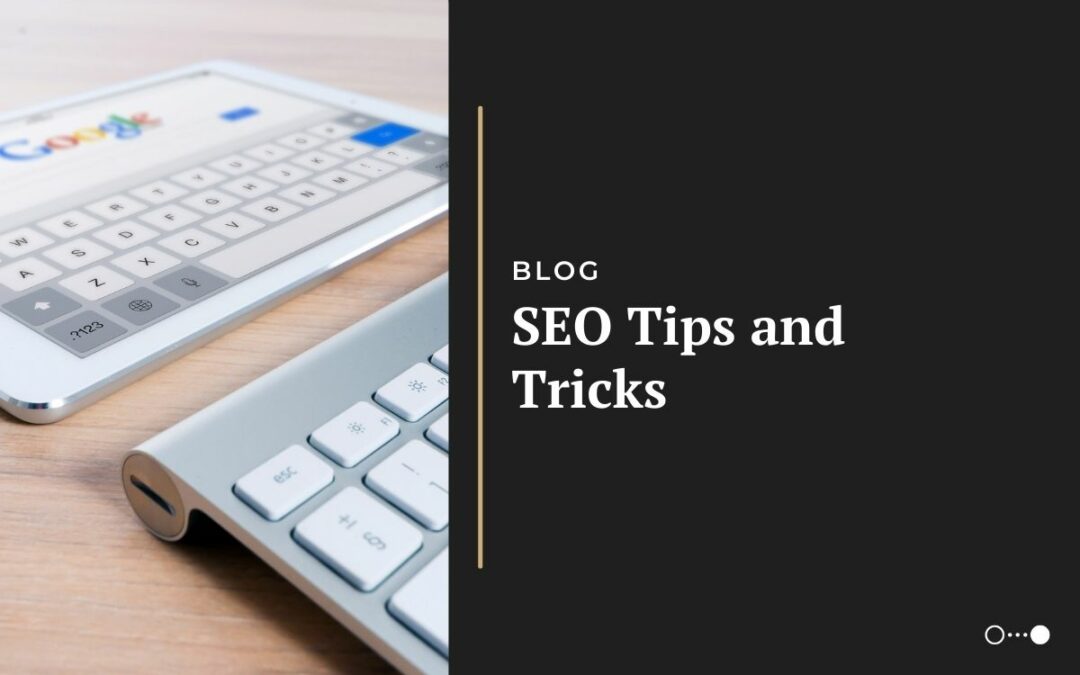Whether your website needs better performance or more traffic, or the user experience needs to be kicked up a few notches with quality content and a keyword strategy, follow these top 10 SEO tips and tricks and you’ll be well on your way.
1. Lock In Your Google My Business
Be sure to claim your Google business listing and flesh out your profile. Having a fully fleshed-out Google business listing can make a huge impact on your brand’s online visibility, and will help drive both more web and foot traffic to your business, as well as get a LOT more eyes on your brand. Be sure to add your opening hours, a description of your business, business categories related to your business, and add high-quality photos to your listing.
2. Keyword Research
Use a keyword tool such as SEMrush or Google Ads’ Keyword Planner to discover your target keywords and know how many times (and in what areas) people are searching for a particular set of keywords you want to rank for. Once you’ve decided on your top 20 or so keywords, implement them naturally within the content of your website while avoiding “keyword stuffing”. You only need to use a keyword one to two times on a page.
3. SEO 101
Ensure all of your indexed webpages have relevant and keyword-rich page titles, meta descriptions, and H1/H2 tags. For example, if you have an apartment website that doesn’t have the word “apartment” within the page copy, page title, or meta descriptions, you’re going to have a difficult time ranking well for those related search queries. A great example in this case would be to use “Luxury Apartments in San Diego | Name of Your Business” as a page title, and “Luxury Apartments in San Diego” as your H1 tag.
4. Consistent Blogging
Create a blog section for your website and blog about relevant topics related to your brand and include keywords you’d like to rank for. This is a crucial component to SEO that allows you to rank for more keywords, drive more organic search traffic, and can help generate organic backlinks from users. Having a regularly updated blog can exponentially expand your brand’s reach and online visibility.
5. Be Mobile Friendly
Is your site mobile friendly? Use Google’s Mobile-Friendly Testto find out. Now, more than ever before, it’s incredibly important to make sure your website offers a great experience to users on mobile devices. In the U.S., mobile users now make up more than 60% of all web traffic, and that number is only increasing year over year.
6. Create Backlinks
One of the best ways to significantly impact your overall rankings on search engines is to generate backlinks for your site. These are off-site external links from other websites that link directly back to your own site. Some examples of this are Yellow Pages, Superpages, Yelp, and other directory sites. This goes a long way in helping improve your website’s domain and page authority scores, which is a major factor in determining your position on search engine results pages.
7. Kick Up the Speed
As of July 2018, Google introduced a new ranking algorithm update, unironically dubbed the “Speed Update” that will use mobile page speed and performance as part of their method of determining a website’s ranking in their search results. Page load times have a significant impact on a user’s experience and a website’s bounce rates. Get with your developer and take steps to ensure your website loads as fast as possible on mobile devices.
8. Optimize Images
Keep all images under 400KB (very maximum, preferably even less) to avoid slowing down your website. Google’s Squoosh app is a great tool for losslessly compressing images. Also, consider implementing lazy loading for image-heavy pages to further improve performance and your site’s user experience.
9. User Experience Matters
Is your site easy to navigate? Can you easily navigate to all important pages and information within two to three clicks from anywhere on the site? Not only is usability a direct ranking factor, it can be the difference between success and failure for a business. Delight your viewers, don’t frustrate them.
10. Schema Markup
Add schema markup to your header file, which will help search engines display more informative results for users about your business. For example, if you have a lot of great reviews, add the “AggregateRating” markup to your schema to feature your star rating above your search results listing, which can greatly improve your click-through rates.

